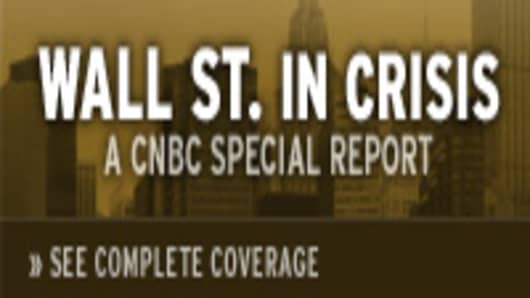Expect Low Rates Next Year
"Administered interest rates will be a lot lower a year from now," Nick Carn, global investment strategist at Odey Asset Management said.
"(Bank of England Governor) Mervyn King has been very courageous in holding the line here and not cutting interest rates until he's quite confident that inflationary risks have diminished, which I think they are rapidly doing."
Your Savings Are Safe
"Nobody is at risk of losing their savings at a British bank. But there is worry and the idea that you can make a guarantee explicit following the Germans may well be the next step. And of course the other step which is more controversial, and that I have been advocating, is that we need to have a really radical cut in interest rates. And the regime we've had for 10 years, and has worked very well, now needs to change the parameters somewhat," Vince Cable, deputy leader of the Liberal Democrats and shadow chancellor, said.
"There was never a time in which we need closer cooperation between governments, particularly within Europe, they fell apart whenever they needed to cooperate. When all the dust is settled, we are going to have to set up proper systems of governments and cooperation but it hasn't been there now and if the Germans are going to go out on their own with a deposit guarantee, then I'm afraid Britain's going to have to follow them."
Europe Should Join the Bailout
"Now is the time for Europe to step up to the plate," Tim Stocks from Taylor Wessing told CNBC, adding that the US bailout package should be part of a global solution.
Inflation is a 'Dead Issue'
Coordinated interest rate cuts would help the economy as "inflation is a dead issue," Stephen Koukoulas from Currency & Fixed Income Research told CNBC.




